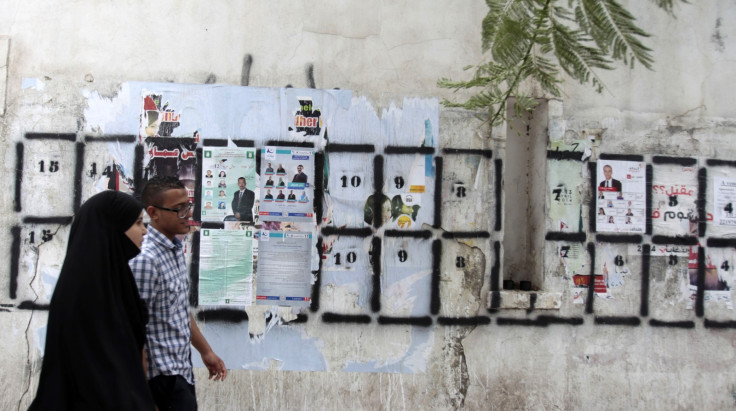Could Tunisia's Election Unleash the Mediterranean Tiger?

Election campaign season returned to Tunisia this week for the second time since the autocrat Zine al-Abidine Ben Ali was ousted from power.
Three years after the Jasmine Revolution, Tunisia remains on course towards becoming a full democracy. Whereas brute force has trumped the ebb and flow of democratic politics in Egypt, the battle for Tunisia's future has largely been a peaceful affair.
Reeling from three years of economic stagnation, Tunisians are expected to vote for the party they believe can boost jobs growth and opportunities.
According to early polling data, the election looks set to be a two-horse race between the Islamist Ennahada party that won the country's first election, and the secular Nida Tounes party headed by a former Ben Ali parliament speaker.
Missed Opportunity for Ennahada
Ennahada, which has strong ties to Egypt's Muslim Brotherhood party, has been tainted somewhat by its relatively poor economic legacy while it governed the country from October 2011 until January 2014.
"There was a lot of political infighting while they were in power and they struggled to do anything" Jason Tuvey, Middle East economist at Capital Economics told IBTimes UK. "Because the economy was doing so badly it was difficult for them to push through reforms."
Indeed the Tunisian economy has only grown around 2% overall since Ben Ali's ouster and its public finances have actually got worse.
Over the past three years, Tunisia's yawning current account deficit has been matched by a widening budget deficit, creeping towards 9% and 7% of GDP respectively. The fact that Ennahada oversaw this period of worsening public finances without acting to avert the slide has hit the party's popularity among the electorate and could hurt the party when Tunisians arrive in the polling booths at the end of October.
Interim Government's Tentative Reforms
"The interim government's made more of an effort," said Tuvey. "It managed to raise some energy prices earlier this year, but importantly it communicated these across to the public and made it clear they were vital to put public finances on a more stable footing."
The reforms were aided by substantial support from the International Monetary Fund, which released more $507m once the interim government was installed in January. The fund had previously delayed the payment due to the Ennahada government's slow pace of reform.
The current programme, worth $1.74bn overall, is due to finish in 2015 but the interim administration has already opened talks with the IMF about rolling over the loan. However, any extension of IMF support would be contingent on Tunisia implementing deeper cuts to fuel and food subsidies.
Mediterranean Tiger in the Making
Despite its long history of economic mismanagement, the small country nestled between Libya and Algeria has excited economists since Ben Ali was removed from office.
With good management, they say, Tunisia has the potential to become a "Mediterranean Tiger".
This optimistic prognosis stems from the country's young and relatively cheap workforce, combined with its position close to Europe.
"North African countries are well-placed to set themselves up as manufacturing hubs to sell to Western Europe" Tuvey told IBTimes UK.
Car manufacturer Renault has already established a major production plant in Morocco and is considering whether to move more production to the country from its Romanian plant, which has faced problems from striking workers.
In addition to the relatively low cost of labour in North Africa, the proximity to Europe could attract other manufacturers to Tunisia, Tuvey said.
Economic Potential Strangled By Corruption
Whoever wins this year's election faces a daunting task to overturn an economic system that was designed to entrench power and wealth within one family.
The Tunisian economy was described in September as being "a system asphyxiated by its own corruption," by the World Bank. The country fostered "an environment where cronyism and extraction, rather than competition and performance, drive economic success," the bank said.
Having explored the ruins of Ben Ali's rule, World Bank analysts relayed the extent to which a single family had come to dominate economic life in the country.
"Market regulation [became] a smokescreen for rent extraction by a small elite," the report read.
"A significant part of the private sector [was] appropriated for the regime by ring-fencing family-connected companies from regulations, or giving special advantages to those firms," it read.
While Nida Tounis has made positive noises about economic reform, pledging to boost security and revive the economy, its leadership hails from the old regime that mismanaged the economy to the point of social revolution.
"There are quite a few figures from the old regime that are part of Nida Tounis," Tuvey told IBTimes UK. "It's not entirely encouraging."
Even if the party were to win and embark on a major graft crackdown, unpicking the corrupt networks that have come to dominate Tunisia's economy is a big challenge that could only be realised over a longer period.
© Copyright IBTimes 2024. All rights reserved.







